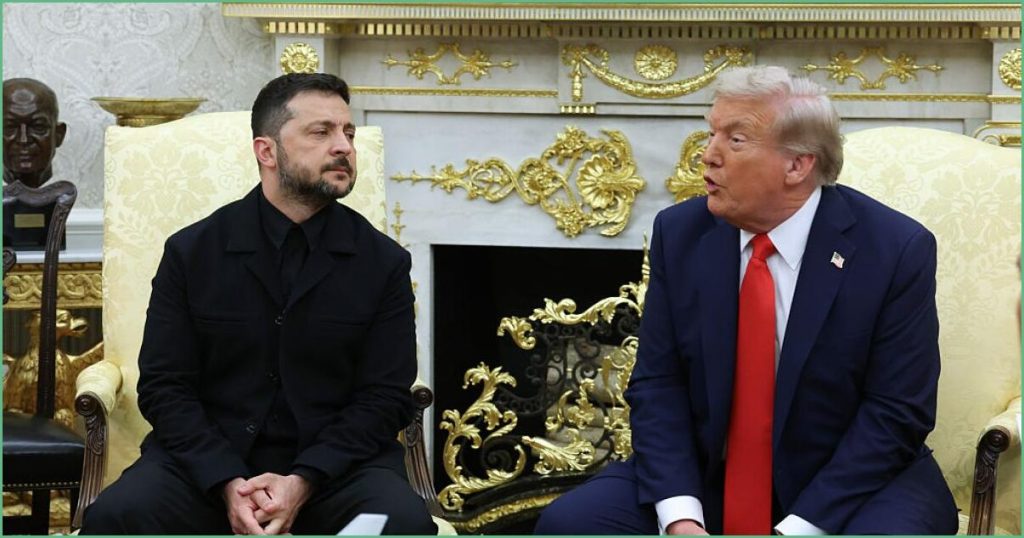President Donald Trump met Ukrainian President Volodymyr Zelensky in the Oval Office this week, and multiple accounts say he urged Zelensky to accept Russia’s peace terms. The public portion of the visit was cordial, but sources report the private session turned tense and erupted into a shouting match. It was a stark reminder that diplomacy often plays out far differently behind closed doors.
Zelensky came to Washington pressing for long-range Tomahawk missiles to regain lost ground, yet he left without a clear pledge from the administration. Refusing or delaying those arms marks a shift in posture that matters on the battlefield and in bargaining rooms. The choice not to commit immediately signals caution about escalation.
The reported exchange also sits oddly next to Trump’s earlier Truth Social message suggesting Ukraine could retake all of its territory, including Crimea. That public optimism and the private push for negotiations show a leader balancing bold rhetoric with hard-nosed bargaining. It’s a mix that keeps both allies and adversaries guessing.
A meeting with Russian President Vladimir Putin in Hungary is expected soon, and whatever happens there could reset the stakes for Europe. Territorial gains by Moscow will harden any deal Russia might accept, which means timing and leverage matter more than soundbites. Diplomacy will have to account for shifting ground, not just statements from podiums.
From a Republican standpoint, pushing for terms that protect U.S. interests is smart politics and smart policy. We want Ukraine to be free, but we also need to avoid open-ended commitments that saddle American taxpayers and extend our military exposure. Responsible support means measuring risks, benefits, and the likelihood of a durable settlement.
Tomahawk missiles are not just another aid package; they change the scale of involvement and the tempo of strikes. Supplying long-range systems raises legitimate questions about whether the U.S. becomes a direct actor in cross-border strikes. Leaders in the room clearly weighed that risk against Ukraine’s urgent needs.
European partners are watching closely, because if Washington pulls back on certain hardware, allies might be forced to step up in other ways. A credible deal will need commitments on financing, enforcement, and post-conflict security from NATO and EU members. If they want a harder line, they will have to pay for it with more than words.
On the home front, voters respond to clarity and results rather than endless promises, and that reality shapes Republican messaging. Trump’s mix of public bravado and private pressure plays into a narrative of getting outcomes rather than sustaining theaters of war. That political calculation will matter as policymakers negotiate aid and arms decisions.
Humanitarian consequences are also in the balance: civilians remain at risk and aid routes are fragile, which creates urgency for a workable pause. Political leaders must consider both military leverage and immediate civilian needs when they sit down to bargain. The next steps on arms transfers, diplomacy, and sanctions enforcement will be watched closely.
Expect the debate to focus on whether a negotiated pause can hold and whether Europe will shoulder more of the burden. Trump’s upcoming encounter with Putin and any follow-up signals from allies will determine whether negotiations gain traction. Policy, politics, and the realities on the ground are all converging in a way that will shape what comes next.



